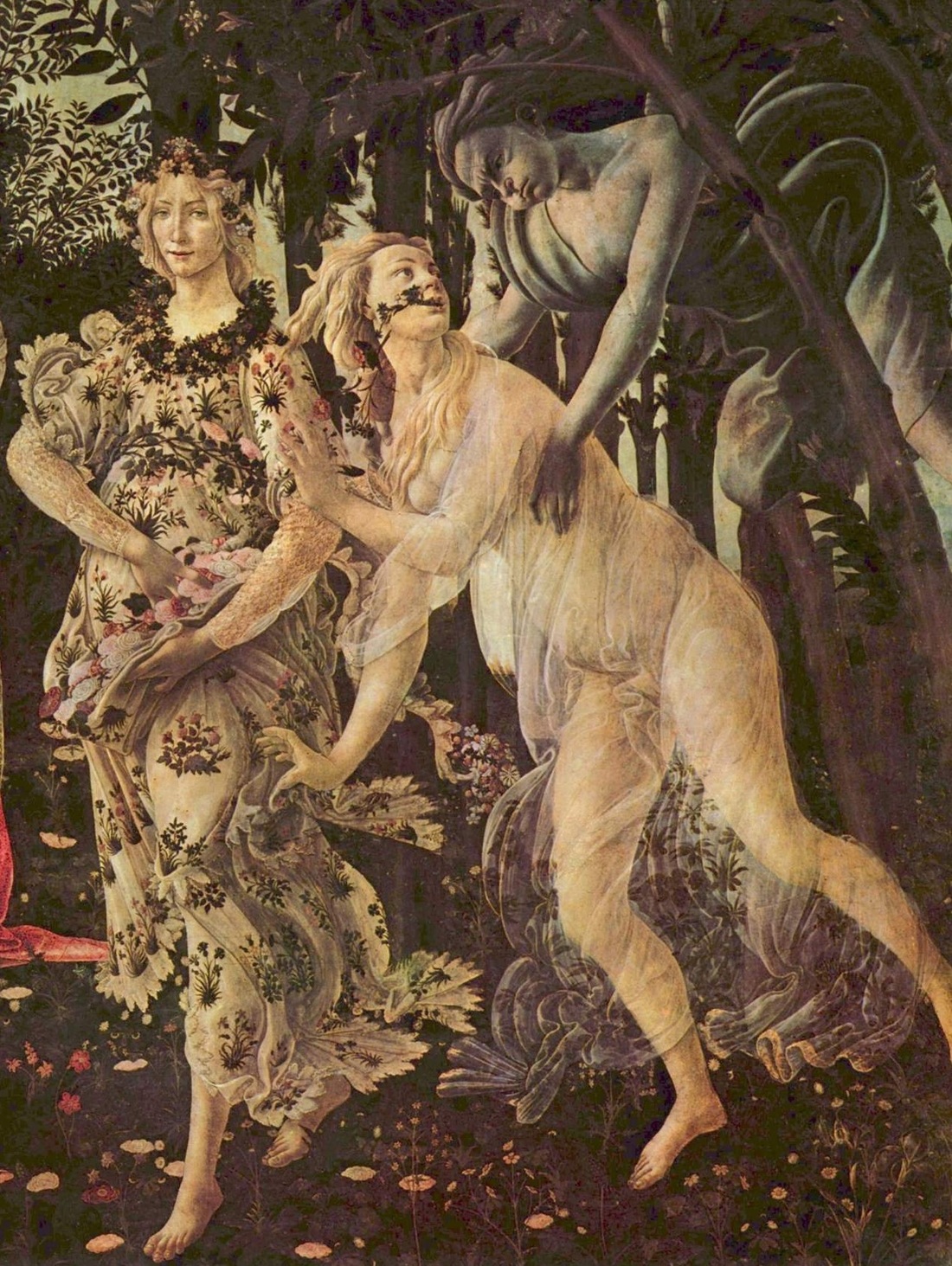Botticelli himself was prone to wild swings. He began his career focused primarily on mythological narratives producing the iconic work, "The Birth of Venus." He also painted religious subjects, but became especially devout later in his life when he followed Girolamo Savonarola, a monk who preached that all of Florence had become too enamored with finery and debauchery. Savonarola held "bonfires of the vanities" where he called upon Florentines to bring their luxuries--including books and art--to throw on the pyre and thus purge themselves of pride and corruption. Some art historians believe Botticelli burned many of his own works, others think he just stopped painting. In the ultimate show of irony, Savonarola himself was burned at the stake on the charge of heresy for his preaching. The Papal hierarchy was not interested in giving up its nice stuff!
My point is to use Botticelli as an example of the pendulum that spring often sets us on. As the weather deviates from lovely to lousy, we too often vacillate from optimism and freshening habits, to the doldrums and old unhealthy patterns. Winter to spring is the most dramatic of seasonal shifts and it can prompt extreme behaviors from us as well. We are literally moving from a dry cold season (artificially countered with lots of hot forced air indoors) to a cold wet season that messes with our physiology and psychology. Therefore, we need to try to counter this wild swing with wise habits that prepare us for the warmer, halcyon days to come (and shorts/swimsuit season).
Often our extreme behaviors are prompted by denial as we indulge our inner brats. For example, we know we should drink more water, but we like getting hopped up on coffee. We know our bodies do better on whole foods, but really like that afternoon cookie/pastry/cake break. It's been a long day, don't we deserve to unwind with a couple of glasses of wine? Sure a walk after dinner would feel good, but the television beckons. And so on, and so on . . . We don't always want to accept that achieving better health or more happiness requires both discipline and patience. It requires commitment to doing the things that will result in success and it usually requires WAITING for the payoff.
What can we take away from this reality? Think about behaviors that you know are beneficial but have a tendency to stray from when fatigue, impatience or frustration strike. These may include:
- Saving money or planning for a desired major expense
- Drinking enough water
- Eating enough fruits and vegetables
- Exercising regularly at a reasonable rate
- Getting to bed earlier
- Getting up earlier
- Meditating or starting the day with a spiritual practice
- Flossing
- Connecting with a partner on a deeper level
- Reading for pleasure and/or edification
Think about what you are veering away from, what you avoid, your wild swings and what sets them off. Spring is the perfect time to face these challenges just as you tuck your head down and walk hard into that strong wind. Now is the time to strengthen your discipline muscle so that come summer you can experience your best self and most healthful habits with ease and joy.
Artfully yours in sunshine and rain,
Lisabeth

 RSS Feed
RSS Feed